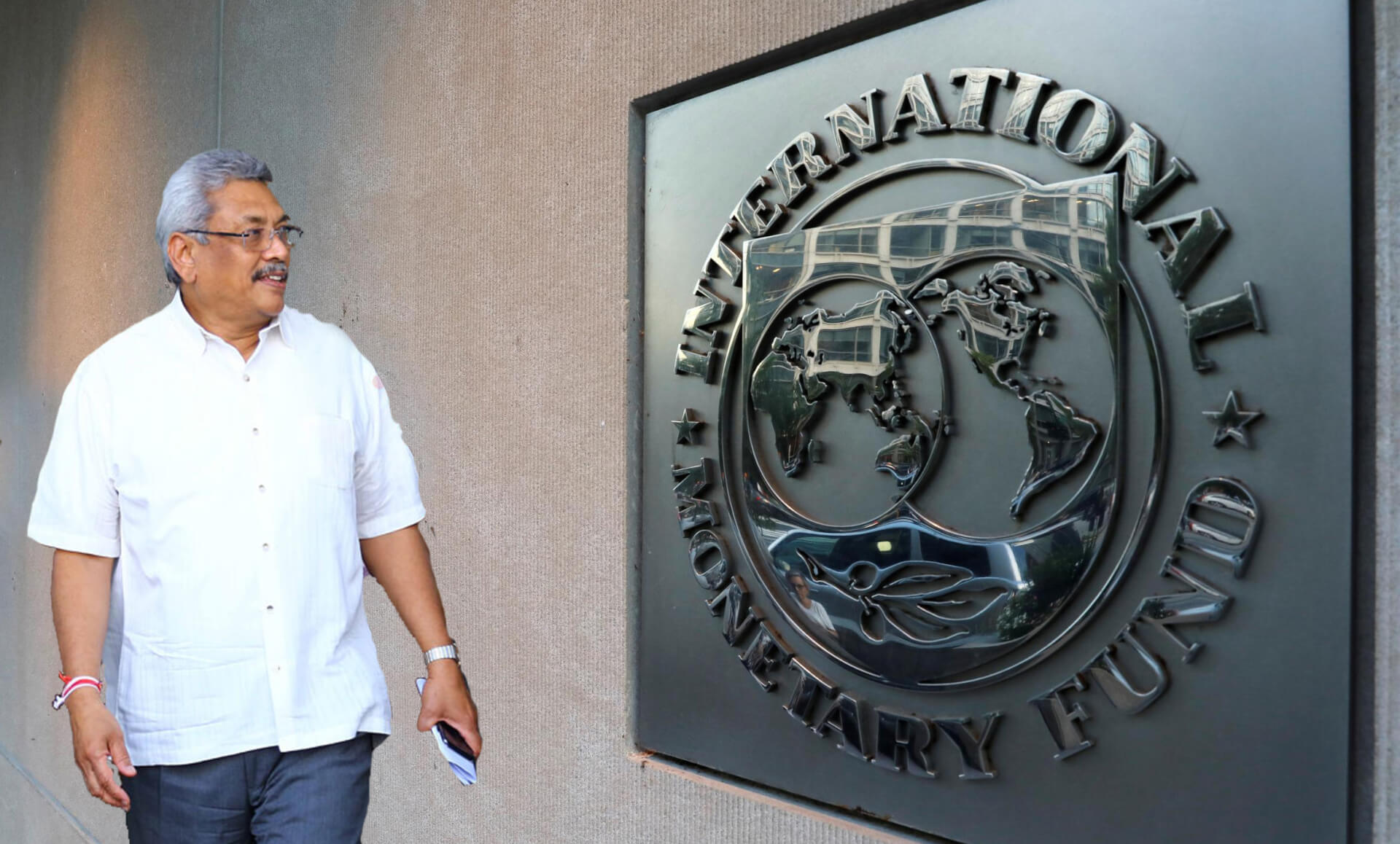The International Monetary Fund’s (IMF) managing director, Kristalina Georgieva, said Sri Lanka’s economic crisis is a “result of mismanagement” by the country’s policy makers, who have put a “once quite prosperous” country on the wrong track.
Speaking at the World Economic Forum in Davos, she said the government must put Sri Lanka “back on a sound microeconomic footing.” Georgieva also appreciated India’s role in supporting and aiding Sri Lanka.
Other release that came out from IMF was on Sri Lanka. Says Sri Lanka would "require adequate assurances that debt sustainability will be restored". pic.twitter.com/j4ORNwP04J
— Sidhant Sibal (@sidhant) May 26, 2022
The comment was made on the same day that the IMF concluded its virtual mission in Sri Lanka, which lasted from May 9 to May 24. IMF officials spoke with Prime Minister (PM) Ranil Wickremesinghe, who was also recently appointed as the country’s finance minister, and also held technical discussions with Central Bank Governor Nandalal Weerasinghe and Treasury Secretary Mahinda Siriwardana.
Following the weeks-long discussions, the IMF released a statement recognising the dire economic situation in Sri Lanka and reaffirmed its commitment to supporting the island nation through the crisis.
We are deeply concerned about the ongoing economic crisis in 🇱🇰 Sri Lanka and hardships suffered by its people. We remain committed to assist Sri Lanka in line with the IMF’s policies, and will engage with stakeholders to support a timely resolution of the crisis. pic.twitter.com/IZlfzLDCMZ
— Gerry Rice (@IMFSpokesperson) May 19, 2022
The release said that the crisis had been worsened by fuel and power shortages, which have been further exacerbated by the surge in global price rises. In this regard, the IMF expressed concern about the impact of the crisis on “poor and vulnerable groups” in the country.
The statement highlighted that the discussions focussed on the details of a prospective “comprehensive reform package” that would help “restore macroeconomic stability and debt sustainability,” while focussing on the vulnerable and poor. The IMF also welcomed the appointment of financial and legal advisors, who led the discussions with creditors, as a significant step towards achieving “debt sustainability.”
Keeping this in mind, the IMF team said it made “good progress” in assessing “policy priorities.” It said the funding programme will include “ensuring credibility of the monetary policy and exchange rate regimes” and introducing “structural reforms to enhance growth and strengthen governance.”
2. Debt Restructuring:
— Ranil Wickremesinghe (@RW_UNP) May 24, 2022
The GOSL has hired Lazard and Clifford Chance as financial and legal advisers for the debt restructuring program. This is a crucial exercise for Sri Lanka and we are expecting a successful outcome. We look forward to engaging with the advisors.
IMF officials determined public debt in Sri Lanka to be “unsustainable” and thus demanded“adequate assurances” on “debt sustainability” as a precondition to release funds.
Meanwhile, PM Wickremesinghe is scheduled to make a special statement in the Parliament on June 7 to highlight the steps the government is planning on taking. The PM said, “I have spoken with the IMF and so have our officials. We have come up with a basic program which we hope to finalise within two weeks.”
He added that he is leading efforts to expedite the conclusion of the plan to avoid losing the opportunity to secure aid from the IMF. Moreover, he said the finalisation of IMF’s assistance program would also help Sri Lanka secure aid from other countries, many of which have been sceptical of providing financial aid in the absence of a formal IMF assessment.
Sri Lanka today received Rs. 2 Billion worth Humanitarian aid including milk powder, rice and medicines from India. Our sincere gratitude to the Tamil Nadu Chief Minister Hon. @mkstalin and the People of India for the support extended (1/2)
— Ranil Wickremesinghe (@RW_UNP) May 22, 2022
In an interview on Wednesday, Wickremesinghe said that budget expenditure had been brought down to the “bare bones” in order to equalise expenditure and earnings and perhaps even achieve a surplus of 1% by 2025. He said that while the IMF’s program would provide a good push to achieve this, the country still had to secure its own dollars.
He said, “One day we have to start repaying all the foreign debt we have, and if we don’t start earning we certainly will be getting into debt burden… So we have to change our economic system.”
He also said that on conclusion of a deal with the IMF, the country would seek to restructure its debts with China. However, he refuted allegations that China’s loans have forced Sri Lanka in a debt trap, saying, “I think the percentage of loans by Japan and China are the same, except that the Chinese interest rates are higher.”

